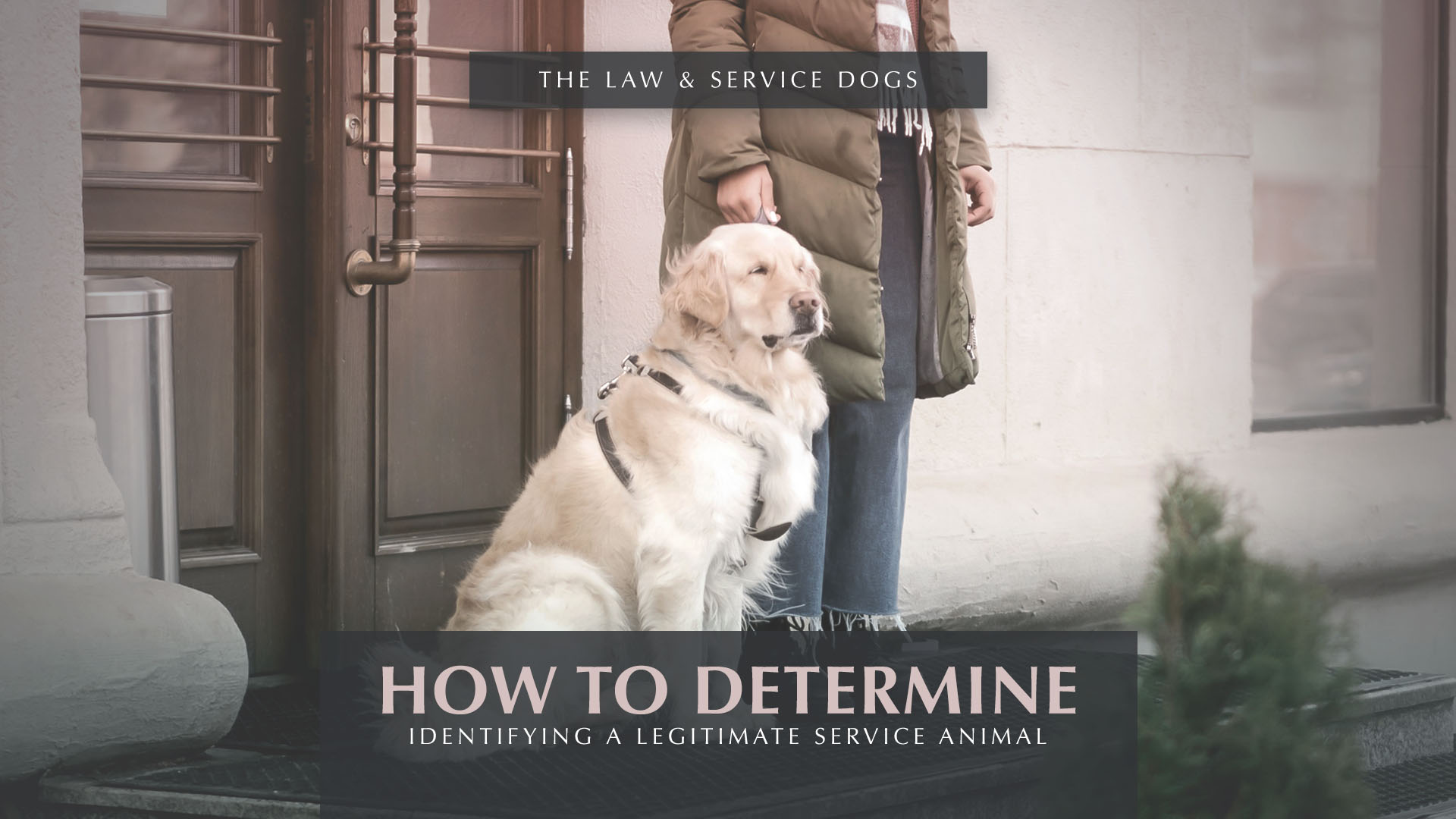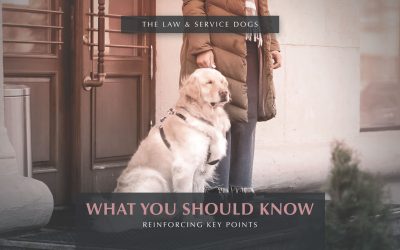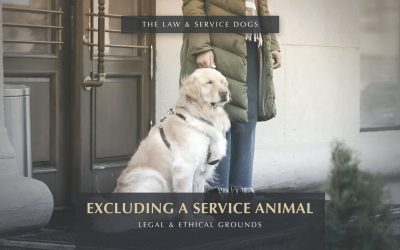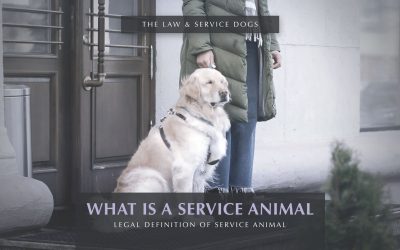Determining Service Animals vs. Pets. DOJ Guidance and Key Questions
The Department of Justice (DOJ) provides clear guidance on determining whether a dog is a service animal or a pet, primarily through the concept of “credible assurance.”
According to the regulations, a place of public accommodation may ask an individual two key questions:
- Is the dog required because of a disability?
- What work or tasks is the dog trained to perform?
This guidance is outlined in 28 CFR § 36.302(c)(6). However, it is important to understand that the questions themselves are just part of the process. The credibility of the answers is what determines whether the dog qualifies as a service animal.
Key Factors to Consider
Key factors to consider in evaluating credible assurance include:
- Behavior of the Dog: Is the dog calm, resting quietly beside its handler, or does it appear anxious, jittery, or distracted by the environment? A trained service dog is expected to behave appropriately in public settings and remain under control.
- Handler Control: Does the handler maintain direct control of the dog, or does the dog seem to be greeting others or otherwise distracted? A service dog should be under the handler’s control at all times, without engaging in disruptive behavior.
- Consistency: The answers given about the dog’s training and the dog’s behavior should align. For example, if the handler claims the dog is trained to assist with a specific task (e.g., providing emotional support during anxiety episodes), does the dog show signs of being trained for that task?
It is essential that businesses and public accommodations make a reasonable assessment to determine if a dog is a legitimate service animal.
REMEMBER…
service animal handlers and businesses have mutual rights and responsibilities.
Exclusion Under Certain Conditions
Even if the dog is a service animal, it may still be excluded under certain circumstances, such as when the animal is out of control or causing a disruption.
The right to be accompanied by a service dog is not absolute!
It carries with it certain responsibilities, and businesses can even exclude a service dog under certain conditions. For instance,
- if a service dog is allowed to arbitrarily greet others without permission or acts aggressively toward other patrons or another service dog and the handler does not take effective measures to correct the misbehavior, a business has the right to exclude that dog.
- Similarly, if a dog takes products off the shelf of a retail establishment and the handler does not correct the behavior, a business has the right to exclude that service dog.
- If the dog is not housebroken, the business has the right to exclude that dog.
If A Business Decides A Service Dog Should Be Excluded
If a business determines a service animal should be excluded, it should document the reasons for such an exclusion through either a detailed contemporaneous note or – even better – by creating a video recording of the animal’s behavior prompting this exclusion. Such documentation would be very helpful should a formal complaint be filed against the business.
If a public accommodation properly excludes a service animal under § 36.302(c)(2), it shall give the individual with a disability the opportunity to obtain goods, services, and accommodations without having the service animal on the premises.
As An Aside –
- The Department of Justice categorically states that service dogs should not be allowed to ride in shopping carts.
- Restaurants, bars, and other places that serve food or drink are not required to allow service animals to be seated on chairs or allow the animal to be fed at the table.
This ensures that individuals with disabilities have equal access to public spaces and services, just like other patrons.
For further information on the definition and regulations surrounding service animals, you can visit the official ADA website or access the full text of the implementing regulations:
28 CFR § 36.302 - Modifications in policies, practices, or procedures
This ensures that people with disabilities are not excluded from enjoying public accommodations simply because they rely on a service animal to aid in their daily lives.
Resources: ADA Requirements: Service Animals | Advocates for Service Animal Partners | Code of Federal Regulations




